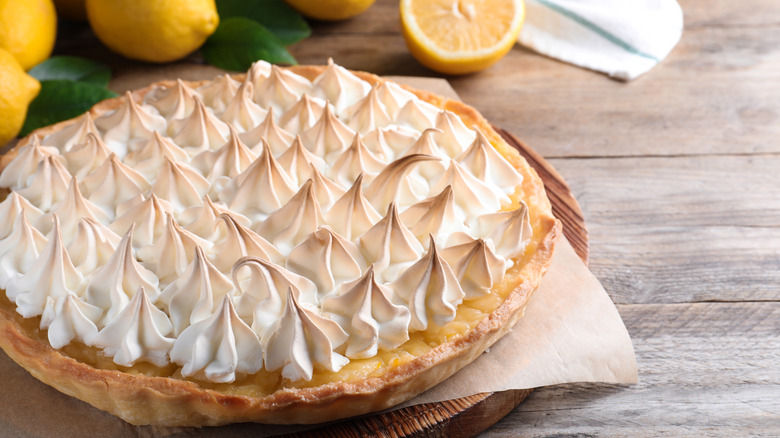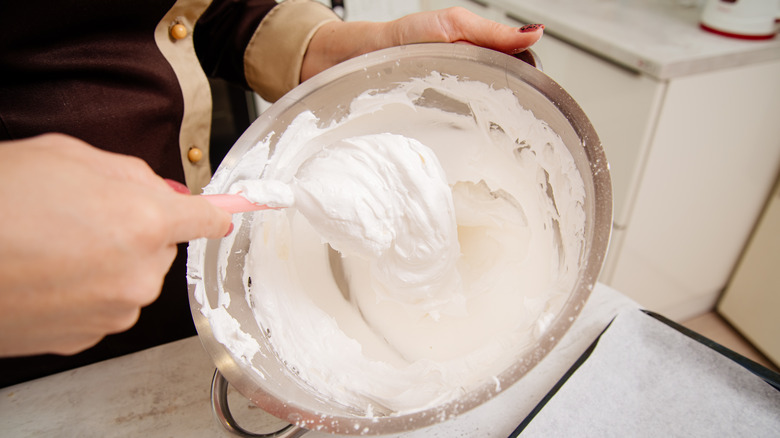Potential Reasons Your Meringue Is Weeping
Meringue is probably — no, definitely, one of the sweetest inventions to grace our desserts. Try to imagine a lemon meringue pie or a chocolate pavlova without it. Whether it be Swiss, French, or Italian, meringue is the perfect way to enhance the look and taste of your cakes, pies, tarts, and, of course, your Baked Alaska. This near-magical fluffy, cloud-like dessert is made out of whipped egg whites, cream of tartar, and sugar and can be baked into stiff spirals or left soft and pliable for scooping.
Many people love to make meringue because it is an easy way to heighten their desserts, but like with all baked goods, there is a catch. Though meringue is made using simple ingredients, it is an extremely temperamental thing to whisk together. Baking Kneads says there are a handful of ways your meringue could go wrong: The mix could have been exposed to fat or oil, you could have under- or over-beaten the eggs, added too much sugar too fast, your eggs were cold, or your dessert could begin to weep. Yes, weep. And it is as sad as it sounds.
No, no, don't cry!
What does it mean when we say that your meringue is weeping? It doesn't mean that it is overwhelmed by how delicious it is, or crying out in fear of being consumed. Instead, Better Homes & Gardens defines weeping as the process of the liquid and solids in your food separating. The liquid can pull away from the other aspects of your dish in recipes such as jellies, custards, and of course, your meringues. When a meringue weeps, a dark liquid begins to appear on the surface of the egg whites and pools together in a muddy brown pond at the bottom of your dessert.
As a way to avoid this unfortunate mess, Southern Living suggests a few tips and tricks to keep your meringue together. Firstly, try not to bake on a humid day. This rule applies to more than just meringue but the extra moisture in the air will not help to set your dessert. Another thing you can try is using superfine sugar instead of your basic granulated sugar. And if you're putting your meringue on top of a pie, make sure the bake is still piping hot so it steams the meringue from the bottom.
King Arthur Baking also recommends adding cornstarch during the whipping process. This method is especially good for a meringue you plan to bake. Cornstarch will absorb excess liquid and keep your sweet from weeping, which is an especially helpful trick to use if you have to bake on humid days.

